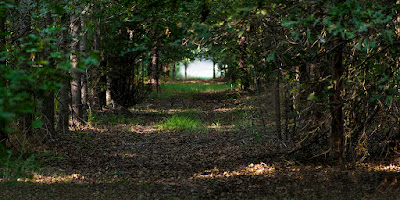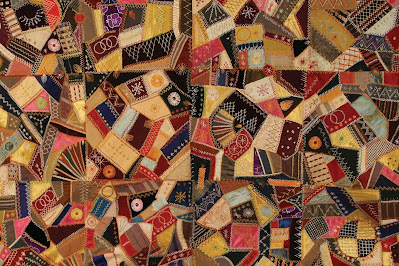Trinity Sunday, June 15, 2025, Grace Episcopal, Monroe, La
A few years ago, I was listening to American Roots on public radio and heard a song called “The Eye” by Brandi Carlile. The key lyric in that song is this: “You can dance in a hurricane if you’re standing in the eye.”
Striking imagery. And my immediate response was, “The title of my memoir—when I get around to writing it—will be ‘Dancing in the Eye of the Hurricane.’”
Today is the one day in the church year devoted to a point of theology—perhaps our most important but most challenging point of theology—the Trinity. I don’t know if that memoir will ever be written. But today’s Trinity Sunday sermon is entitled “Dancing in the Eye of The Hurricane.”
Because that’s how I experience the Triune God and God’s call and claim on my life.
Now, you are not about to hear some clever theological explanation of how the Trinity is like a hurricane. Rather, like every other sermon I have ever preached, this one comes from my life, from what happened this week, from how I encountered God in the world yesterday, last month, many years ago.
God comes to us disguised as our life, writer Paula D’Arcy said. And that quote is now available as a poster, and on a t-shirt, or printed on.. whatever.
It resonates. Hear it again: God comes to us disguised as our life.
And life is a lot like a hurricane. Sometimes we dance along happily and competently in the relative calm of the eye. And then we miss a step or the roiling turmoil around us lurches in an unexpected direction, and we are bouncing off the walls. It takes time to get back into that eye where we can dance again, and only in retrospect can we see that God was in it… and we in God... the whole time.
Many times getting bludgeoned by the winds of the hurricane is exactly how we encounter God’s call and claim on us in a way we cannot ignore.
I’m a teacher. I didn’t always know that. I discovered it by way of the really messy business of a marriage ending badly. After careening about for a time wondering where in heaven’s name that had come from, I was left with the task of reinventing myself.
I went back to school to get a Bachelor’s degree and got invited to be a teaching assistant while still an undergraduate. I then taught my first college class the summer after I graduated, went straight to graduate school that fall, finally finished all my degrees in the spring of 1990, began teaching full time that fall. And I still teach…
Teaching can be made to matter. It can change things. Here’s a story: A few years ago, I had a student, a young woman who wanted to complete the Public Relations major. But she was not the best student and she struggled. I despaired of ever getting her through the program.
But finally she made it! She completed all the requirements with passing grades and graduated. A couple years later, I received a large envelope in the mail, from her. It contained a beautiful marketing brochure. It was well designed; the writing was flawless.
The attached note said, “Thank you to the woman who taught me I could do this.”
Comments like that will keep a teacher going for a very long time!
Much has happened from there to here. I’ve lost my balance, been blind-sided, and bounced off the walls by the hurricane of life more than once. Another marriage ended in the death of a spouse. A very real hurricane dumped a boy who needed a mom into my life. And I discovered I needed a son!
I think there’s some real truth in the adage, if it doesn’t kill you, it will make your stronger! Each time, a way forward that ends up looking like a call from God has emerged from the chaos.
My friends, this is what dancing in the eye of the hurricane looks like for me. I don’t know what dancing in the eye of the hurricane looks like for you, only that you too are called.
Whatever you are doing with this one glorious and precious gift we call life, God is already at work loving and reconciling this world and you, me, all of us are called to be a part of that.
Please do not hear in any of this the tired notion that “God has a plan for my life and if I just pray hard enough and am good enough, God will send signs to tell me whether to take this job or that one, move here or there, sell the farm or not, start that business or not, etc., etc.”
Such thinking has never done much for me. I rely on the promise God made to Isaiah in Chapter 30, verse 21: Whether you turn to the right or to the left, your ears will hear a voice behind you, saying, “This is the way; walk in it.”
So consider the possibility that God does not care much about worldly details! Whether you teach or sew or practice law or medicine or babysit your grandkids or sell real estate or wait tables, make it matter. God’s plan for your life is that you will be God’s reconciling love in the world.
I invite us to look at everything we do, and aren’t doing, and ask, Where is God in this? How does or would this enable me to participate in God’s reconciling love in the world? To serve others? To care for those who need to be cared for, and to enable those who are able to care for themselves to do so, so that all can participate in God’s reconciling love in the world?
That’s the way. Walk in it!
We come from God, we are in God through the Risen Christ, and God is in us through the indwelling Holy Spirit. Nothing can take that away from us. Not the most devastating storm. Nothing can take that away from us.
And when we relinquish our own feeble attempts to control life, when we accept that we cannot, when we forgive life for being exactly what it is and seek only to offer ourselves and our lives to being God’s reconciling presence in the world, ...then we dance in the eye of the hurricane.
Dance on, my friends.
In the name of God, Father, Son and Holy Spirit, AMEN.











